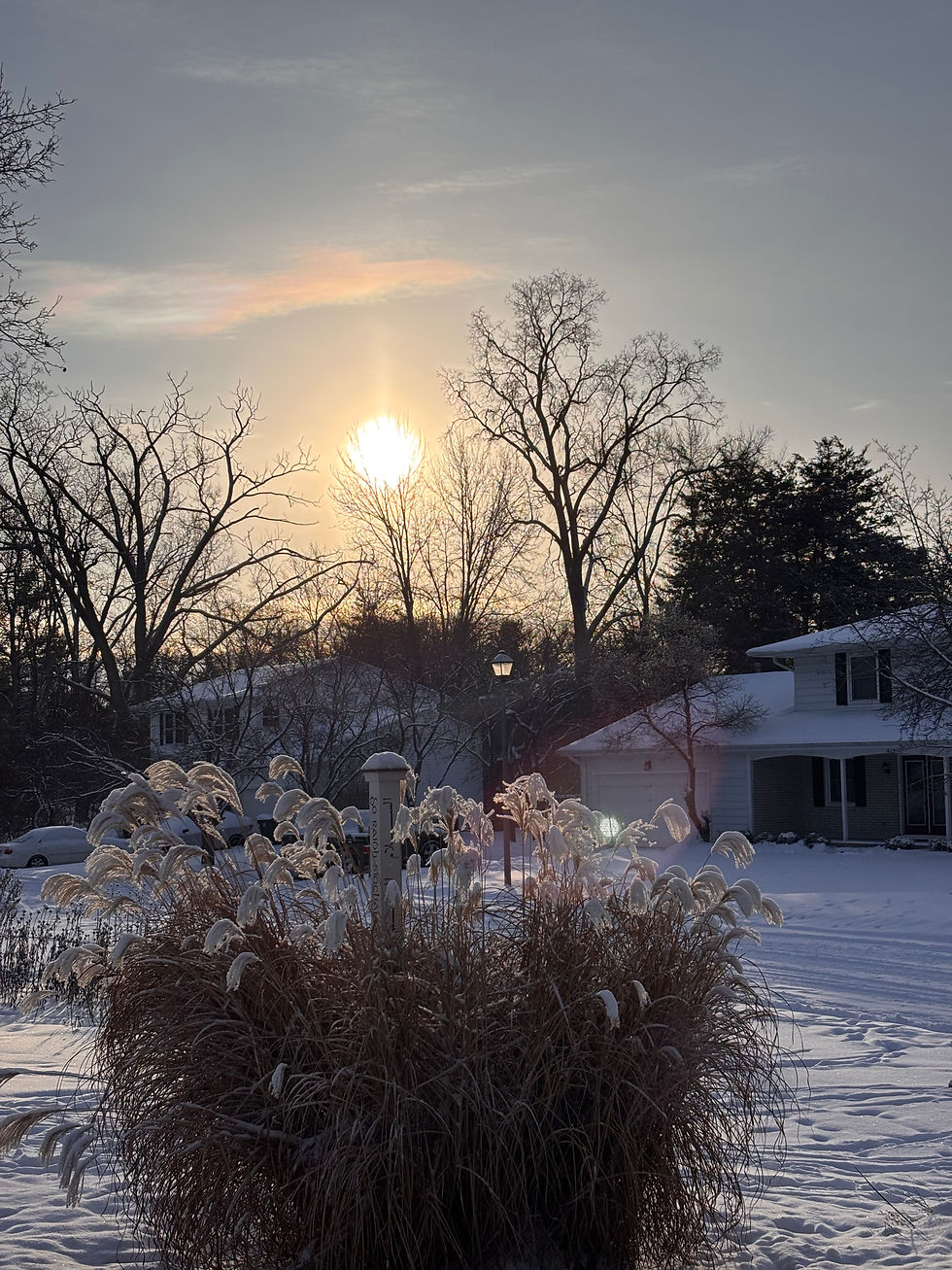Seasonal Affective Disorder
- Julie Roy
- Sep 22, 2025
- 2 min read

Here is a slightly amended version of a post I wrote last year at this time:
Wow, what a doozy. Days are getting shorter, which tends to make us tired and grumpy. Many of us have allergies ramped up, and now we have a constant barrage of the most difficult to watch news.
First of all, what is Seasonal Affective Disorder? It can be described as:
“You’re feeling unusually lethargic, isolating yourself from friends, or having difficulty concentrating from day to day, you may actually be dealing with the condition, a form of seasonal depression.
For the record, SAD is much more serious than just longing for sunnier days. People who experience it “feel depressed and have low mood states similar to someone who presents with a diagnosis of depression,”
It’s not just gloomy moods; it can worsen major depression and bipolar disorder, and shows up more frequently in women. Supposedly. Men are also less likely to admit to depression; perhaps they may ask themselves if they are more irritable? Isolating more?
What are the symptoms of major depressive disorder?
According to the NIMH, these are the main symptoms of major depression:
Feeling depressed most of the day, nearly every day
Feeling hopeless or worthless or guilty
Having low energy
Losing interest in activities you once enjoyed
Having trouble sleeping
Experiencing changes in your appetite or weight
Feeling sluggish or agitated
Having difficulty concentrating
Having frequent thoughts of death or suicide
Additionally, with SAD, someone may
Feel more tired. Isolate more. Crave more carbs and gain more weight.
Occasionally, seasonal depression can be evident in summer but is rarer.
So what to do?
First, if you are having difficulty with increased lethargy that prevents you from daily life or suicidal thoughts, please seek mental health support immediately.
If you need additional options to improve energy, try light therapy boxes, get outside daily especially for exercise when weather permits or go for walks indoors/visit a gym, seek medical assessment of vitamin D levels and consider supplements. Emphasize eating fruits and vegetables.
And finally about the news cycle. Please consider what the impact of the news is doing to you. Try to reframe feelings of hopelessness by being engaged with what is important to you, reminding yourself what is in your control, and seeking supportive communities for thoughts of fear. Remember that we can feel anxiety and hold hope that support will show up no matter the outcomes.
Finally, If you or someone you know needs help, call the National Suicide Prevention Lifeline at 1-800-273-TALK (8255) or text TALK to 741741 to message with a trained crisis counselor from the Crisis Text Line for free.





Comments